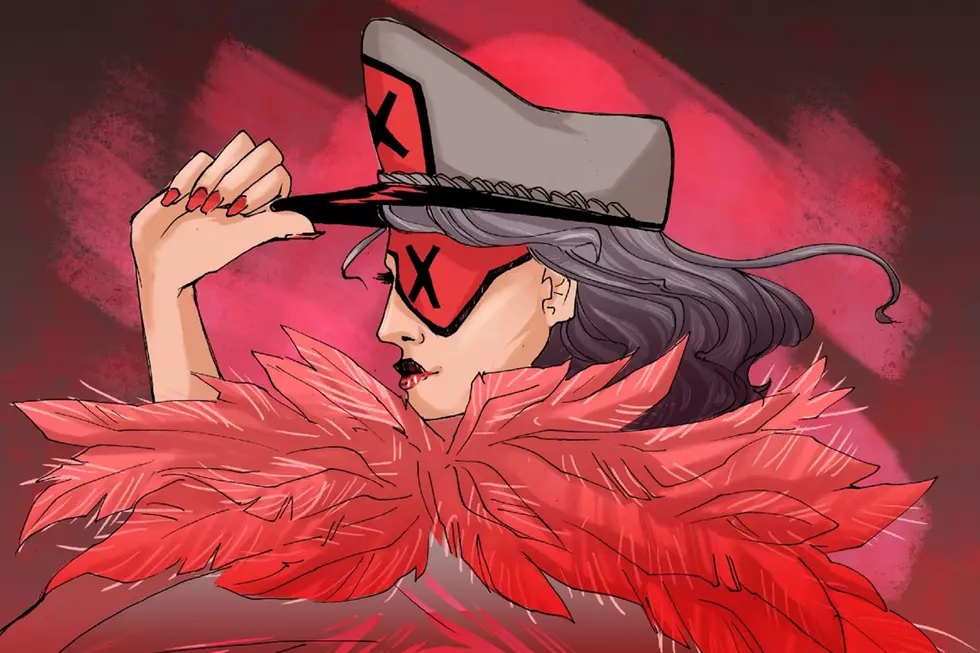
Something’s Missing: The Loss of Buenaventura Press

It's been almost two weeks since we found out that it's been five months since Buenaventura Press closed its doors. The span of time between the event and the news breaking had an odd cushioning effect, like when you find out someone you used to know and lost track of has died, but years ago. It's still a shock, and it's still horrible, but the time removes the "what's going to happen next?" moment, the "how do we go on after this?" feeling, because whatever happened next, it already happened. You've come to the tragedy late, and you're already on the other side of it.
Many have commented on how it took the comics news cycle five months to discover that one of its finest publishers had shut down, generally expressing dismay at how such a thing could occur under all our noses. While I understand that Buenaventura's absence from the scene has been a topic of discussion in certain circles for some time now, I think it's undeniable that the broader circle of discussion that makes up comics culture had little to no clue this has happened, and I'm not convinced this is entirely a bad thing.Now mind you, Buenaventura Press closing down is unequivocally a Bad Thing, but the fact that they were able to fade away with only a select few really noticing at first is somewhat heartening to the strength of Art Comics in the 21st century. Imagine if, in 1990, Fantagraphics Books hadn't started Eros Comix but instead quietly run out of money and closed its doors. American Art Comics would have been dealt an earth-shattering body blow from which it may have taken a depressingly long time to recover. Today, as Chris Butcher's oft-linked list shows, there's such a wealth of quality publishers putting out daring, interesting, not-really-like-anything-else works that the loss of a publisher as iconic and important as Buenaventura Press, while awful, can be taken in stride.

This is not to say that nothing has been lost with the passing of Buenaventura Press. (Which I'm being painfully careful to avoid shorthanding as simply "Buenaventura," as I don't need my syntax implying that anything nasty has befallen publisher Alvin Buenaventura. For equally obvious reasons, I'm taking great pains to avoid calling the defunct publisher "BP," lest they be blamed for some truly tragic circumstances.)
First of all, they published some amazing books. Lesser known contemporary artists like Vanessa Davis and Ted May were given spotlights from which to dazzle us all. "Jack Survives," Buenaventura's first real reprint volume (first of what we all hoped would be many) is a big, beautiful book that's a pleasure to hold and leaf through, and also happens to be one of the most important reprint volumes of what many (including myself) have taken to calling the Golden Age of Reprints. And I don't think there was anyone not left wondering what shape Kramers Ergot 8 might take, and just how exactly it would crush us all and rule us with an iron fist.

More than just the product, however, we've lost a strong advocate for a certain attitude, a way of thinking about comics that is difficult to master and impossible to fake. Alvin Buenaventura started out in fine art printmaking, and though he grew up ingesting comics he was primarily attracted to original art as art, as opposed to the adventure stories or the fan culture. He came to publishing comics not out of some nostalgic desire to be part of the comics culture, but out of an artistic impulse to package and present things he found beautiful and important in the ways that best suited them. It's a difficult distinction to make without accidentally disparaging some very good publishers, and it's not my intention to look down on others' efforts in the slightest.
But the way Buenaventura Press treated a release was not as a book that needed the best possible design and shape, but rather as a unique opportunity to create something visually and physically new that would just so happen to be a book at the end of the process. If it were possible to bottle and save the psychic energy Alvin injected into the world of art comics, we wouldn't need people like him to come around and stay as long as possible. But that kind of worldview can't be duplicated, and so I sincerely hope that Alvin both wants to and is able to re-enter the fray in the near future, the sooner the better.

On a truly personal note, I'm looking ahead to September, when each year I make a pilgrimage 20 miles north to Bethesda, MD, where at the Small Press Expo I wander around and breathe in The New. I'm notoriously slow to grasp new trends, find new artists, absorb new works. The hectic pace of keeping up with the newest in any artform stresses me out and ruins my ability to actually enjoy the work in question, and while I love new sounds and styles I almost always let things pass me by and then observe them from a slight remove, and then carve out what I find most interesting. A convention table is therefore maybe my favorite context in which to look at comics, as I'm presented with a flat surface full of all the new stuff from the past however-long, and I can flip through and linger over a huge shock of newness (even though, to many around me, a lot of the books are old news).
Over the past years, Buenaventura Press has been one of my favorite stops -- admiring the galleys to the yet-to-be-released "Kramers Ergot 7" quickly became one of my fondest convention memories -- and when I wander through the rented Marriott ballroom this September, they won't be there. In thinking about what's been lost here, that inevitable absence is what looms largest in my mind, and of all the reasons I can give for why we're poorer for the passing of Buenaventura Press, that one makes me the saddest. Good luck to Alvin, his crew, and the artists he published. We hope to see you all again soon.
More From ComicsAlliance





![Giant Phones And Terrible Jobs In ‘Task Force Rad Squad’ #5 By Caleb Goellner And Buster Moody [Preview]](http://townsquare.media/site/622/files/2017/03/TFRS-5-FEATURED.jpg?w=980&q=75)

![Creators For Creators Grant Awarded To M. Dean For ‘I Am Young’ [ECCC ’17]](http://townsquare.media/site/622/files/2017/03/I-Am-Young-0.png?w=980&q=75)

